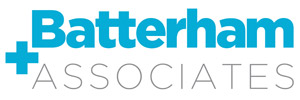One of the main reasons new businesses fail is because the correct market research wasn’t carried out to determine its viability.
Why spend time, effort and money setting up your business, only to find an identical product is already being sold elsewhere? Or maybe customers simply don’t want to pay for the service you’re offering?
It is therefore essential you conduct some new business market research before writing your business plan. The results of the research will help you shape your offering and work out what your marketing strategy will be.
Unfortunately, asking your mates if they think you have a good idea for a business won’t be enough. A more honest and reliable response to your idea will likely come from a number of people in your target market, or from a cross-section of the public.
The first thing to do is to think about your ideal target market and develop your buyer personas. This will give you a solid understanding of who your buyers are and their needs. Then build your research questions around these specific personas.
Simple Market Research Ideas
Information can be obtained on your chosen market through written questionnaires, face-to-face surveys, online surveys and focus groups.
It’s often best to get out there and talk to people face-to-face wherever you can. After all, these are your potential customers.
Talking to them face-to-face will help you understand your customers better and ensure you are well on your way to developing a working relationship with them. You may even get a sale – but at the very least it will give you some leads you can use for future marketing of your business.
If you are planning on conducting some formal research then bear these points in mind:
- People often look at the first few questions on a questionnaire before deciding whether or not to complete it. To encourage people to complete your questionnaire, make the first couple of questions the most engaging.
- Questions should be simple and understandable, and at the same time meaningful and interesting. Any technical terms should be clearly explained. Avoid ‘biased’ or ‘leading’ questions and be careful not to lead the respondent into giving the answer you would like to receive.
- If your questionnaire is simple and concise people will be more likely to complete it.
Another alternative are focus groups which enable you to explore people’s attitudes, behaviour, views and concerns on new products or marketing ideas in a closed-group environment.
A focus group consists of small groups of volunteers who meet in a conference room together with a trained moderator. It is the moderator’s job to lead the discussion, ask questions, listen to the responses and provide results and feedback to their client. One disadvantage is that the focus group is small and may not be representative of public opinion in general – so watch out for this.
Of course, if you don’t have a lot of money to spend on research then focus groups may not be for you. Focus groups are usually run by professional marketing companies for a fee and can be quite pricey.
It’s always best to get a few quotes first before you take the plunge as market research companies fees vary. The price will depend on the type of research they are going to be carrying out for you and how involved it might be.
Research Results
The results of your market research, whichever method you use, should give you a good indication of the following:
- The demand for your product or service
- Customer buying behaviour and attitudes
- Customer awareness of a product or service
This knowledge will help you determine how best to promote your product or service and ensure you are well on your way to achieving a successful and profitable business.
Do You Need Advice For Starting a Business?
Batterham & Associates offer professional business advice, and can help you set-up and finance your new venture. Your first consultation is FREE. Book an appointment today.

